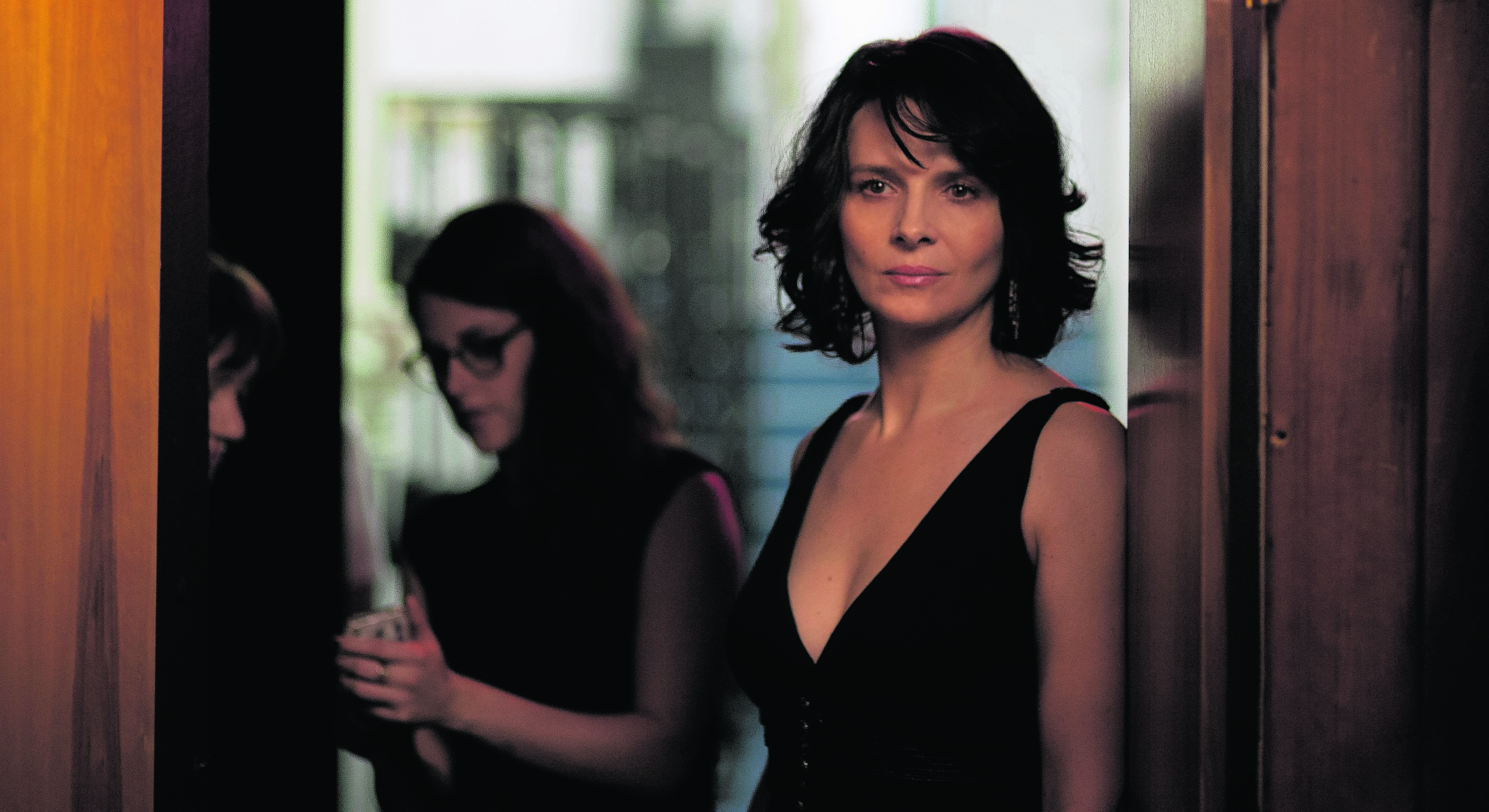Juliette Binoche wipes away the cappuccino foam from her upper lip and apologises for having her mouth full.
The French actress has been tempted by a chocolate muffin from the selection on offer in her London hotel room, but she is not impressed.
“I thought, ‘Chocolate, yeah, I need a bit of chocolate’. But this is so stupid. It looks like chocolate but it doesn’t smell or taste like chocolate. It’s a LIE!” she exclaims, giggling.
Of course, she would know, having won a string of award nominations for her portrayal of a master chocolatier in the 2000 film Chocolat, alongside Johnny Depp.
In her latest movie, The Clouds Of Sils Maria (out now), she plays a famous actress who is persuaded to remake her debut film. Except, instead of playing the vampish young assistant again, this time she must play the older employer the assistant seduces, only to break her heart and destroy her life.
But Binoche’s character Maria can’t understand the fragile emotions of the role, and clings to the part she played in her prime.
The project is entwined with parallels, both on and off screen.
It is directed by Olivier Assayas, for starters, who worked with Binoche on 1985 film Rendez-vous, in which she played a young aspiring actress who moves to Paris to begin her career.
The follow-up, which the 51-year-old describes as “a wink at the past”, was her idea.
“I approached him (Assayas) saying, ‘I have an idea, would you be interested in developing this?”‘ she reveals.
“You have to provoke, initiate projects. If you have a thought going through you, or a feeling, you have to go for it.”
Impulsive Binoche is so warm and open, it’s impossible not to feel relaxed in her presence.
Dressed in a black fluffy jumper and suede trousers, with barely a smidgen of make-up on her ivory skin, she looks radiant.
She admits she relished the chance to play an actress, however tortured.
“When you’re an actor and you have to talk about acting, it’s fantastic, because it’s your field. It’s the water you’re bathing in,” she says.
“And I was happy to be able to show what an actor’s going through sometimes in their personal life. It costs something to play something.”
She also understands some of the paranoia her character goes through in the film.
Binoche is starring in a new production of Sophocles’ Greek tragedy Antigone, which has been on in London and is touring Europe before heading to New York.
Playing such a tortured soul, night after night, takes it toll, she admits.
“The night of the premiere, I said, ‘What am doing here? Why am I going through his hell?!’ Because you think, ‘Those critics’. You’re the target, and they have rifles coming onto you. That’s the paranoia of the actor. But somehow, you’ve got to put your mind and your spirit in another place.”
Born in Paris in 1964, Binoche started acting in school plays. She broke into films in the early 1980s and gradually made a name for herself, playing the lead in Jean-Luc Godard’s controversial Hail Mary (1985), and the Three Colors trilogy in the early 1990s.
In 1996, she starred in Anthony Minghella’s The English Patient, winning both an Oscar and a Bafta for Best Supporting Actress. She wept as she accepted the latter, exclaiming, “I thought England didn’t like me!”
Since then, she has appeared in English, American and European films, but never allowed herself to be tied by language, genre or industry.
And it is for that reason she feels she has never felt limited by age, as so many actresses claim to be.
“I don’t feel that,” the mother-of-two insists.
“If you feel that, you have to create your own desire. You have to be a creator, not hanging yourself there and waiting and feeling sorry that it’s not fair. You have to create yourself, that’s what I believe.
“That’s why I never wanted to be in the ‘system’,” she continues, referring to how she’s avoided being sucked in to the cult of celebrity, and all that comes with it. “I never wanted to be part of a system. I’m autonomous.
“In France, I’m not really in the French system, and I’m not in the American system, I’m a kind of free cell hanging around and choosing my path, encountering directors and minds and artistic desires.”
She admits acting is a tough business, and when she was starting out, she never had to deal with the public scrutiny that comes with today’s celebrity-obsessed culture.
She is impressed by how well her younger colleagues – Kristen Stewart, 25, who plays her personal assistant in the movie, and Chloe Moretz, 18, who plays her young co-star – have coped with it themselves.
“I understood that it’s a lot, because they both started very young,” says Binoche.
“I was fascinated, because I was playing at school doing theatre, but I was never put in the spotlight at that young age. I understand the tension.
“But they’re strong women, both of them, they have strong minds and spirits.”
And a strong spirit is what appears to have got Binoche through the trials and tribulations of the industry.
Unlike her character, whose desperation to hold onto the past she describes as a tragedy, Binoche does not look back.
“In acting, you have to be so present, you’re using the memories in order to create something new,” she muses.
“It’s true that I don’t think too much of the past. It’s me, Juliette, I’m like that, I’m a very present lover.”
With that, Binoche laughs her carefree laugh, and it is clear the clouds of the past are not hanging on her shoulders.
